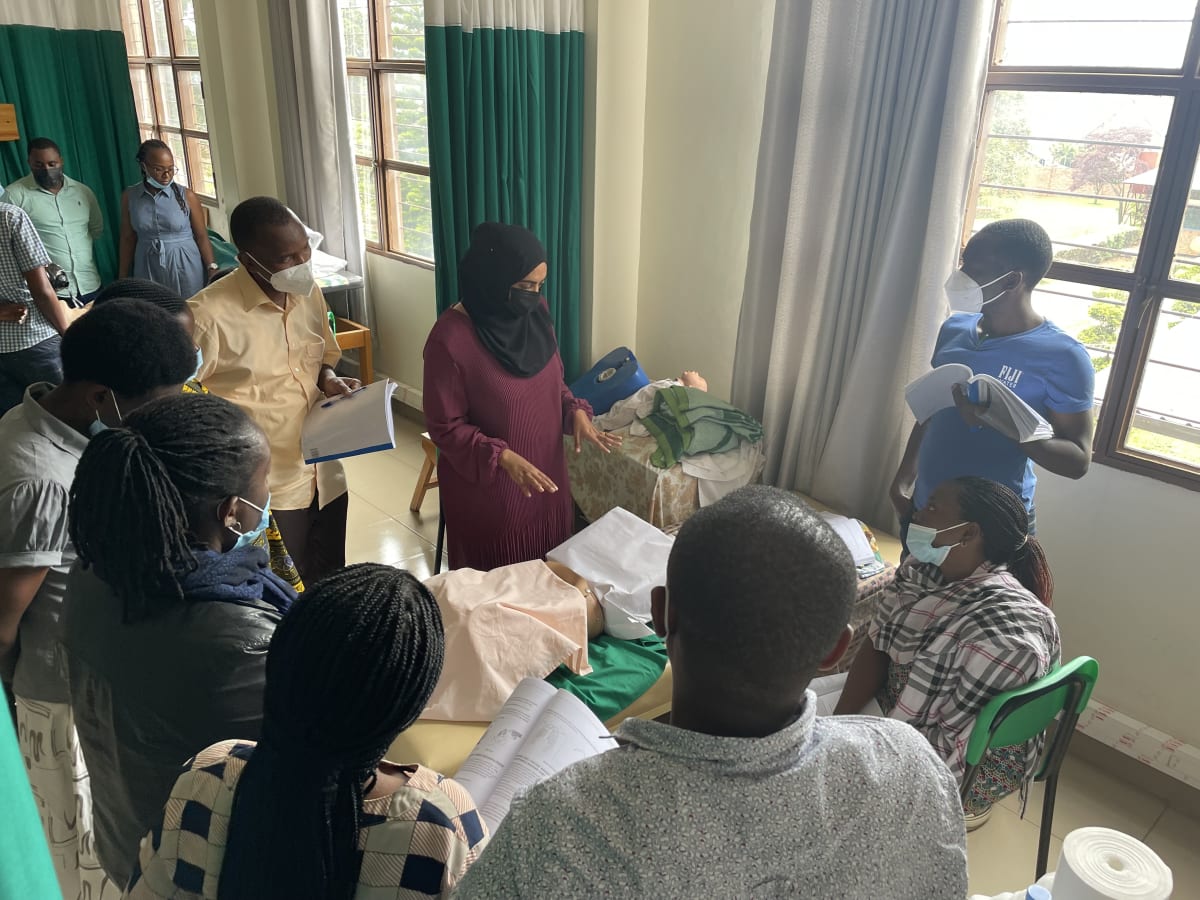The World Health Organization’s Basic Emergency Care Course (created in collaboration with the International Committee of the Red Cross and the International Federation for Emergency Medicine) is an open-access training course for frontline healthcare providers who manage acute illness and injury with limited resources. I have been trained and certified to act as a course facilitator during the 6-day course being held in Kigali, Rwanda March 24th-29th, 2022. As a PGY-3 at the Brown Emergency Medicine Residency program, I have collaborated with members of University Teaching Hospital of Kigali (CHUK) and Brown EM’s Global EM Division to plan and fundraise in order to facilitate the BEC course for approximately 50 healthcare providers in Kigali, Rwanda. I am the skills session lead for the course and as a certified WHO BEC instructor I will also act as in-person course facilitator.
Ultimately, improving the knowledge and skills of local emergency healthcare providers will lead to improved care for patients.
The healthcare workers providing emergency care in Kigali and the surrounding area will benefit from the additional training in emergency medicine skills. However, the population receiving the most benefit will be the future patients seeking emergency care who will receive more advanced care and management of their emergent disease processes and traumatic injuries. The Brown Division of Global EM has a long-standing relationship with physicians at CHUK and the course will primarily be run by Rwandan physicians from this institution.
The WHO Basic Emergency Care course and been studied and validated in several other African countries. Published studies have shown that pre-and post-course questionnaires completed by course participants demonstrated significantly increased confidence in managing emergency conditions and agreement with course objectives (Olufadeji 2021). The Brown Division of Global EM has a long-standing relationship with physicians at CHUK and the course will primarily be run by Rwandan physicians from this institution. At the end of the course, we will also be holding a 2-day BEC Training of the Trainer (TOT), a program that selects a group of stronger participants of the BEC course and trains them to be WHO BEC facilitators themselves. This is the primary model of the WHO BEC course, allowing healthcare providers within the country where the course is implemented to continue to train fellow healthcare workers with a self-sustaining model that will continue to expand emergency care skills without requiring external support.
Olufadeji, A et al. "Results from the implementation of the World Health Organization Basic Emergency Care Course in Lagos, Nigeria" African Journal of Emergency Medicine, V. 11, Issue 2, 2021.
















The people directly impacted by my trip were the doctors and nurses who participated in the WHO Basic Emergency Care (BEC) course and the subsequent BEC training of the trainer course. Through the lectures, small group discussions, and skills stations the course participants were able to expand their knowledge of acute illness and trauma management. After the course one of the participants stated, "I am proud that I have learned these skills and that I know I will be providing evidence-based care to my patients". Indirectly, their patients will be impacted as they will be cared for by healthcare providers who now have an expanded knowledge of the management of emergent medical and traumatic conditions.
We had a total of 39 participants successfully complete the BEC course and 11 of those health care providers also completed the training of the trainer course. Additionally, we had 4 Rwandan doctors/nurses who are trained BEC facilitators help teach this course allowing them to move along the WHO BEC training pathway and bringing them one step closer to becoming master trainers. One of the Rwandan emergency medicine doctors who led the course will receive his WHO BEC master training certification and combined with the new cohort of Rwandan-based BEC facilitators he will be able to run future BEC courses without the need for international facilitators to assist. This will greatly streamline the process and lower the cost to run future BEC courses.
Finally, I was impacted as I improved my teaching skills and ability to organize global emergency medicine educational programs.